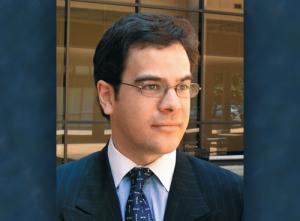Imported natural gas contains more Btus and fewer impurities than the domestic variety, raising questions for LNG development.
Richard Stavros is the Executive Editor of Public Utilities Fortnightly.
It started as a small problem that was supposed to stay small. When Federal Reserve Chairman Alan Greenspan called for a global natural gas market in 2003, the industry knew inherently that the quality and composition of natural gas imported from places like Qatar and Nigeria would vary from the gas used domestically in the United States.

But utility execs were not fazed much. Many assumed that the American gas utility sector could resolve the problem without much effort—as the Europeans and Australians, who import sizeable qualities of LNG, have already done.
After all, if the oil majors could manage to blend and standardize the world’s diverse grades of crude oil to accommodate any automobile driven around the globe, then surely
the natural gas industry could do the same. Gas-fired generation is not rocket science.
Neither is the home furnace, the kitchen stove, or the basement water heater.
Yet today, more than a year after Greenspan’s speech, this small issue has morphed into a major obstacle—one that experts say could delay LNG development plans. The challenge of gas interchangeability has raised questions about reliability, finance, and environmental compliance, with very few answers to come by.
In a nutshell, most gas-fired equipment and appliances in America are not calibrated to the enhanced combustibility of LNG, which boasts a higher quality and fewer impurities than domestically produced and process gas.

